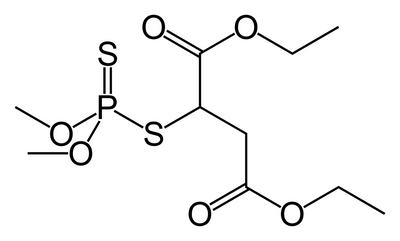Organophosphate Pesticides: What You Need To Know
RSS
Stephanie Angione, Ph.D. | Scientific Contributor
Pesticides are chemicals used to kill environmental pests including insects, weeds, fungi and rodents. This article focuses on organophosphate pesticides, which are one type of pesticide used today. If you're looking for a more general overview on pesticides, you can view it here.
History Of Organophosphate Pesticides
Organophosphate pesticides largely replaced DDT and other chlorinated hydrocarbons in the 1960s and 1970s, including the compounds malathion, parathion, and diazinon. These compounds were originally favored over DDT since they break down much more rapidly in the environment, and do not present the problem of persistent pollution like their predecessors. That said, the degradation products of organophosphate pesticides can also be toxic. The EPA has thus banned the residential use of organophosphates, but they are still widely used in agricultural applications and for mosquito abatement. Organophosphate pesticides account for approximately 30-40% of all insecticides used in the US. Despite their widespread use and toxicity, organophosphate pesticides break down in the environment rapidly, and are thus rarely found as contaminates in groundwater as the intact chemical.
Health Effects Of Organophsphate Pesticide Exposure
The health effects of organophosphate pesticides in humans differ based on acute or chronic exposure, as well as the exposure amount. Since organophosphates inhibit the action of acetylcholinesterase, acetylcholine builds up in the nerves, and overstimulation of the central nervous system results in widespread effects including headache, seizures, depression of respiration and circulation, tremors and potentially coma. Victims of acute organophosphate poisoning typically die because they can’t breathe. Effects of chronic organophosphate pesticide poisoning are similar and include confusion, memory loss, depression, disorientation, weakness, headache, nausea and vomiting. While still inconclusive, there is evidence that organophosphate exposure causes several types of cancer, including lymphoma and leukemia.
How Do I Remove Pesticides From Drinking Water?
Water filtration systems that use activated carbon as part of the filtration media blend or reverse osmosis can be effective in removing pesticides from water. Contrary to what some people tell you, boiling/freezing water does NOT remove pesticides from drinking water!
Do You Have More Questions About Organophosphate Pesticides In Drinking Water?
Hydroviv makes it our business to help you better understand your water. As always, feel free to take advantage of our “help no matter what” approach to technical support! Our water nerds will work to answer your questions and provide organophosphate pesticide info, even if you have no intention of purchasing one of our water filters. Reach out by dropping us an email (hello@hydroviv.com) or through our live chat. You can also find us on Twitter or Facebook!
Recommended For You
What Do I Need To Know About Contamination In My Well Water?
Why Should I Care About Endocrine Disruptors?
How Can Agricultural Runoff Contaminate My Drinking Water?




